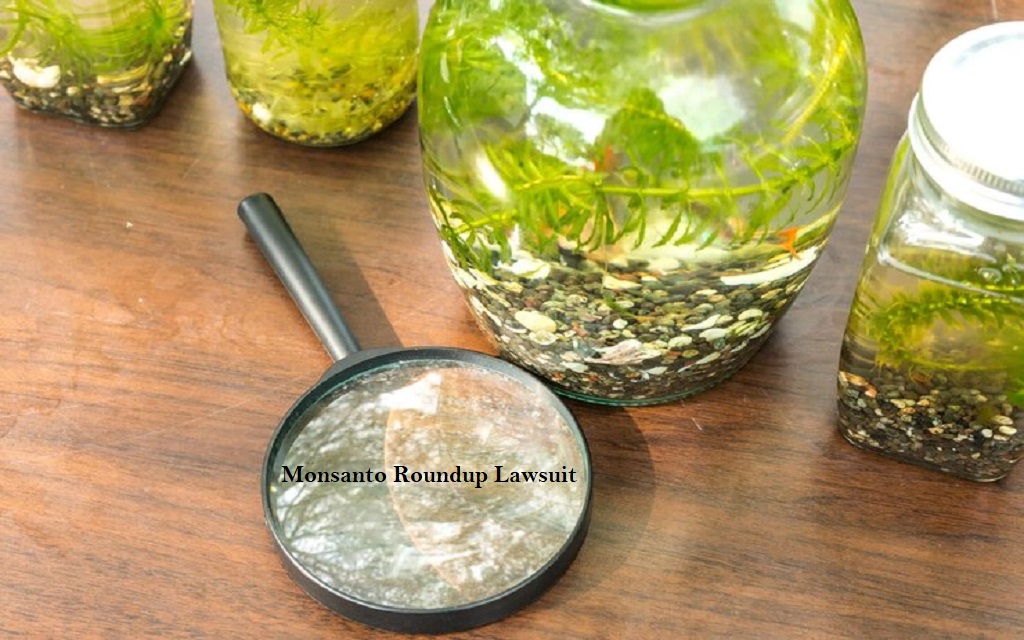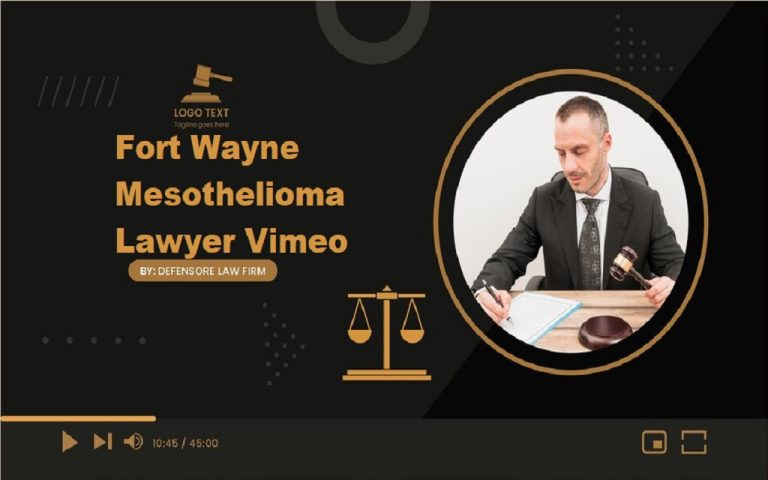You should know that hundreds of Americans are affected by the Monsanto Roundup lawsuit. Farmers, landscapers, and ordinary customers are said to have experienced serious health issues as a result of the weedkiller. Most concerning is non-Hodgkin lymphoma, a cancer that spreads quickly and weakens the immune system.
Lawsuits allege that the company concealed the risks associated with its products. You should realise that the emphasis today is on the company’s knowledge and when it knew it. As of 2025, more than 67,000 cases are ongoing in court. The size and urgency of the legal battle are depicted in this picture.
How Was the Monsanto Roundup Lawsuit Started?
Notably, litigation began when research linked glyphosate, the main chemical in Roundup, to cancer. You should read the 2015 report from the World Health Organisation. The survey indicates that glyphosate is probably carcinogenic to people. That announcement led many to take legal action.
Lawsuits quickly followed. The plaintiffs asserted that the danger was never disclosed to them. According to internal memos, Monsanto may have been aware of the potential risk. You should be aware that this caused public indignation and prompted more lawsuits.
What Role Did Bayer Play in the Lawsuit?
You should understand that Bayer acquired Monsanto in 2018 for $63 billion. The deal passed regulatory reviews but came with unexpected consequences. Bayer inherited all existing and future Roundup claims. That decision linked Bayer directly to Monsanto’s product liabilities.
Bayer insists that glyphosate is safe. However, several juries disagreed. In many verdicts, Bayer was ordered to pay millions in damages. The company continues to fight back through appeals. Still, the legal burden weighs heavily on its financial outlook.
In 2020, Bayer announced a settlement agreement under which it would resolve approximately 125,000 lawsuits and pay up to $10.9 billion in compensation. However, because its agreement did not cover future claims, the company remained exposed to ongoing litigation.
Are Courts Supporting the Plaintiffs?
You should be aware that courts have consistently supported many victims. In 2018, a jury awarded Dewayne Johnson $289 million. He had applied Roundup regularly while working as a groundskeeper. His doctors diagnosed him with terminal cancer.
Later, courts reduced the amount, but the decision remained a legal milestone. Other significant cases followed. Some verdicts reached $80 million or more. Each case revealed new facts about Monsanto’s internal knowledge and practices. Jurors found that Monsanto ignored safety concerns.
How Many Lawsuits Are Still Open?
As of early 2024, approximately 67,000 Roundup cases remain pending. Bayer has settled thousands of claims. It consented to pay more than $10 billion in 2020 to resolve almost 100,000 cases. The legal issues continued after that settlement.
Many plaintiffs opted out. Others rejected the amounts offered. Public awareness has grown. Investigations continue. Bayer now faces pressure to reach new agreements or win more trials. Each case adds new details to the broader story.
What Is the Basis of Most Claims?
It is essential to know that most lawsuits link glyphosate to non-Hodgkin lymphoma. You should note that plaintiffs argue they used Roundup regularly without being warned. They claim Monsanto misled them about the product’s safety.
Internal emails suggest Monsanto tried to influence research. Some plaintiffs argue the company ghostwrote studies. These claims have drawn criticism from scientists and lawmakers. Courts often rely on expert witness testimony to evaluate evidence.
Who Are the Victims in Roundup Cases?
Victims include farmers, landscapers, and homeowners. Most used Roundup over long periods. Some worked in fields every day. Others sprayed Roundup on driveways and gardens. Over time, they developed severe health conditions.
You should be aware that many people were unaware of the risks. Their trust in the product put them in danger. Some victims lost their lives. Families of deceased users have also filed wrongful death claims. Each story adds urgency to the case.
What Have Experts and Studies Shown?
You should review the data from multiple studies.
Glyphosate is likely carcinogenic, according to the International Agency for Research on Cancer. This study provides the basis for several lawsuits. The Environmental Protection Agency (EPA) of the United States, however, disagrees. It claims that there is no cancer risk associated with glyphosate.
Because courts must consider contradicting expert testimony, this scientific gap confuses. Some experts claim Monsanto ignored early warnings. Others believe Roundup is safe when used correctly. Juries often decide based on which experts they trust more.
Why Do People Still Use Roundup?
You should understand that Roundup remains on the market. Many users value its quick results. It kills weeds fast and keeps lawns clean. Farmers use it on crops like corn and soybeans. Homeowners apply it for landscaping and gardening.
Some people are unaware of the lawsuit. Others believe short exposure is not harmful. Many rely on government safety assurances. Roundup’s strong brand reputation helps maintain steady sales despite growing legal concerns.
How Has Bayer Responded?
It is essential to know that Bayer has taken several steps. It created a settlement fund. The company also plans to remove glyphosate from consumer versions of Roundup in the U.S. by 2025. Bayer wants to avoid future claims.
The company denies wrongdoing. It continues to appeal verdicts. Some appeals have succeeded. Others were denied. Bayer also supports scientific research to demonstrate the safety of glyphosate. Still, public trust remains low.
What Happens If You Use Roundup?
If Roundup is causing health problems for you, you should get legal counsel. A non-Hodgkin lymphoma diagnosis bolsters your argument. Free consultations are provided by solicitors. Most accept cases on a contingency basis. This means you pay only if you win compensation.
Document your use of Roundup. Gather medical records. Legal teams can assess your case and explain your rights. Many law firms now specialize in Roundup litigation.
Can You Still Join the Lawsuit?
Yes, you can still take legal action. You should act quickly. Every state has a statute of limitations. It often ranges between one and three years from diagnosis. Delay may cost you the chance to file.
Lawyers can help confirm your eligibility. Filing deadlines differ by state. Early action ensures better results. Legal teams can guide you through the process.
What Does the Future Hold for Roundup Cases?
You should expect new lawsuits. Trials will continue across several states. Appeals may overturn previous verdicts. Some legal experts believe Bayer will push for a global settlement. Others predict more courtroom battles.
You should also follow legislative changes. Regulators may restrict glyphosate use. New studies may support or refute claims about cancer. The outcome will shape public trust in herbicides and corporate accountability.
Why Does the Monsanto Roundup Lawsuit Matter?
It is essential to understand that this lawsuit has significant legal and health implications. However, it forces companies to face accountability. It brings attention to product safety and consumer rights. Each verdict sends a message about corporate transparency.
You should consider the larger context. The Roundup lawsuit could change how chemicals are approved and marketed. It affects industries, regulators, and families. Public pressure continues to rise. The case remains a legal landmark.
What Should You Remember?
You should be aware that Roundup lawsuits continue to increase in number. Bayer has paid billions. Thousands still wait for justice. If you or a loved one used Roundup and got sick, you should consult legal help.
You should stay informed. Monitor court updates. Review new scientific research. Legal action may help you gain compensation—time matters. Act early.
Conclusion
In short, you should understand that Roundup litigation has changed how people view herbicides. The Monsanto Roundup Lawsuit exposed gaps in safety oversight. It showed how one chemical could trigger national concern. If you believe Roundup harmed you, take action.
You should not wait. Consult a lawyer. Join the voices calling for justice. Your health and rights deserve protection. Let your story be part of the solution.




